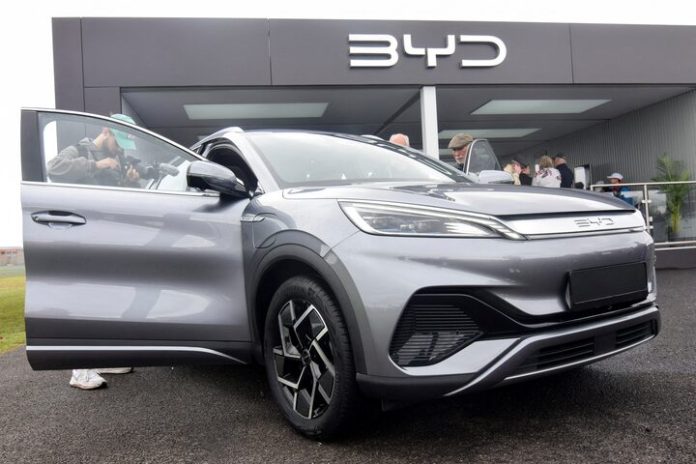A year after Chancellor Olaf Scholz backed the G7’s call for reducing risks associated with China, Berlin is gradually distancing itself from Beijing, according to Politico.
The biggest changes are likely to take place in the security and defence sector. However, Germany’s powerful car industry is resisting amid pressure from the Chinese market.
Scholz will have to decide within weeks whether two warships currently on a mission in the Indo-Pacific will pass through the Taiwan Strait. Meanwhile, warships from the US, Britain, France, the Netherlands, and Canada have passed through the strait to quell China’s ambitions.
Germany also intensified military exercises with Japan, with the commander of the German Air Force being in Japan last month to conduct drills with Japanese counterparts who are increasingly concerned about the Chinese-Russian presence in the area.
Scholz has also joined forces with Taiwan’s best-known corporate giant. Accompanied by European Commission President Ursula von der Leyen, he was in Dresden last week to launch a major technology project led by Taiwan Semiconductor Manufacturing Corporation (TSMC).
TSMC is the world’s leading player in advanced microchips, and a vulnerability in the supply chain could deal a serious blow to Germany’s manufacturing capability.
Growth of German economy
Germany’s trade performance has shown a surprising trend over the past six months. Exports to Poland overtook exports to China amid a weakening Chinese economy suffering from the financial consequences of the collapse in the property market.
However, the automotive industry, the backbone of Germany’s export-led economy, remains very wary of worsening relations with China. Despite the rise of local competitors in electric vehicles, Beijing remains the most important market in the sector.
Both Volkswagen and BMW are facing declining sales in China, their largest market. Some 97 per cent of respondents to a recent AlixPartners survey in China said their next vehicle would be electric.
Not only have Chinese consumers completely switched to EVs, but their spending power is also weaker than before. Nevertheless, China, as the most lucrative market, remains a critical component of the bottom line of European champions and their EV adoption strategies.
The auto industry has vehemently opposed the European Commission’s decision to impose duties on imported Chinese EVs, fearing that Beijing will retaliate sooner or later. It also makes senior officials, including Scholz, even more reluctant to impose tougher measures on China due to Germany’s fragile economy.
Noah Barkin, a senior adviser and expert on EU-China relations at Rhodium Group, a research group, stated:
Despite all the talk from the government about protecting critical infrastructure, it was ultimately the operators that dictated the terms of this deal, and Huawei emerged as the big winner. At the top levels of the German government there is a reluctance to impose economic costs on companies in pursuit of greater security.
